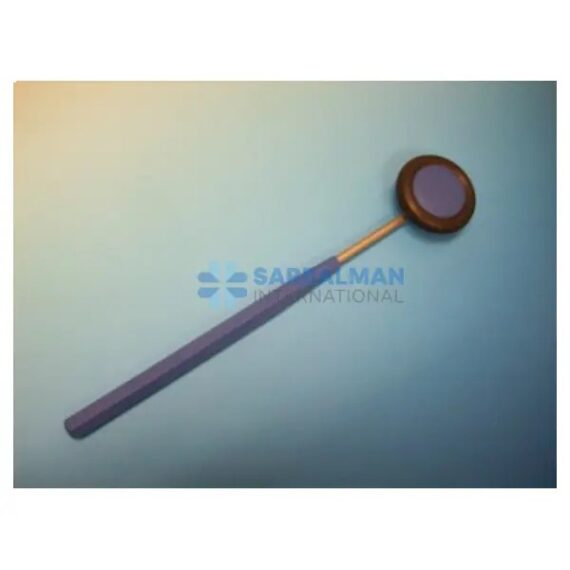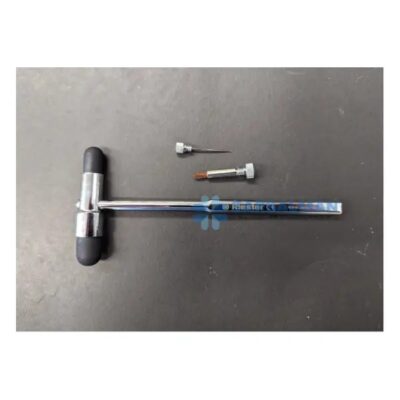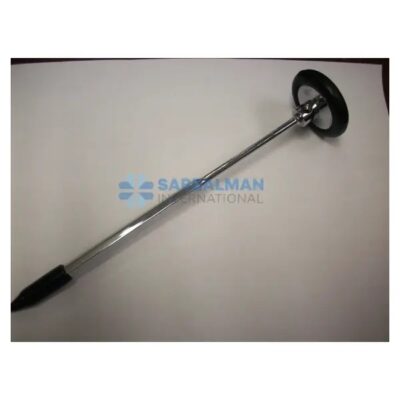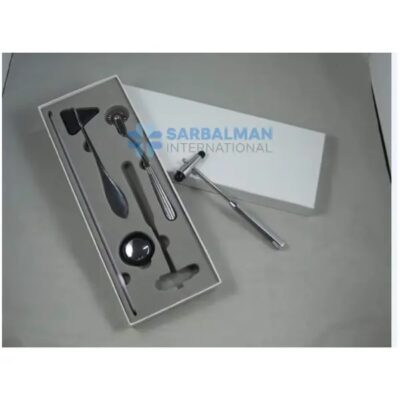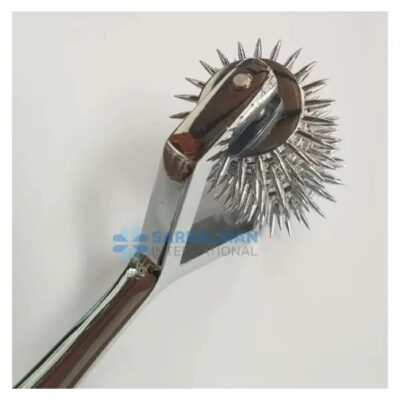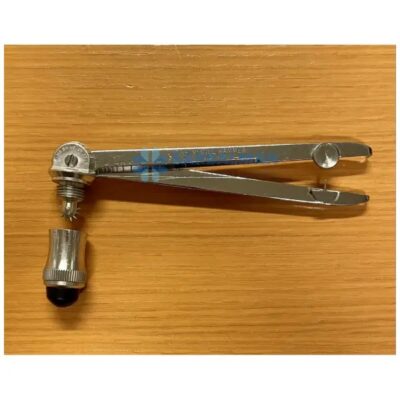Babinski Hammer
Free!
The Babinski Hammer is a professional diagnostic tool used to test reflexes and assess neurological function. Featuring an ergonomic handle and a rubberized head, it delivers accurate, controlled strikes with minimal patient discomfort. Ideal for hospitals, clinics, and teaching institutions, it helps healthcare providers quickly evaluate nervous system health, making it an essential instrument in neurological and reflex examinations.
Description
A Babinski Hammer is a specialized medical diagnostic instrument used by healthcare professionals, particularly neurologists and general practitioners, to test reflexes during physical examinations. Designed with a unique, broad, and rubberized head, it allows precise stimulation of tendons and nerves, making it especially effective in assessing deep tendon reflexes and neurological responses. Unlike standard percussion hammers, the Babinski Hammer is distinguished by its versatility, ergonomic design, and ability to deliver controlled, graded taps.
Key Features and Benefits:
-
Ergonomic Handle: Provides a comfortable grip for prolonged use during neurological exams.
-
Balanced Weight Distribution: Ensures consistent reflex testing without unnecessary strain.
-
Rubberized Head: Offers accurate strikes with reduced patient discomfort.
-
Multi-functional Use: Some designs incorporate a pointed end or brush for additional sensory testing.
Common Applications:
-
Used in neurological assessments to evaluate motor responses and reflex pathways.
-
Helps in detecting conditions such as neuropathy, spinal cord injuries, or central nervous system disorders.
-
Suitable for use in hospitals, clinics, medical schools, and physiotherapy practices.
Compared to general reflex hammers, the Babinski Hammer offers more precision and control, making it a preferred choice in neurological examinations. Many medical professionals appreciate its ability to deliver both delicate and forceful taps, depending on the patient’s needs.
High-quality Babinski Hammers often comply with medical standards, ensuring durability, hygiene, and reliable performance. Its role in clinical practice remains vital, as reflex testing continues to be one of the simplest yet most effective diagnostic tools in medicine.

